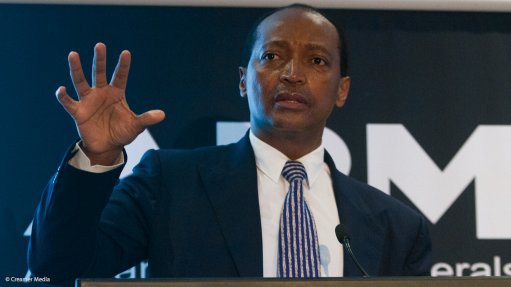
African Rainbow Minerals chairperson Patrice Motsepe
Photo by: Duane Daws
More than 500 business leaders attending the World Economic Forum on Africa in Cape Town have been challenged to invest in Africa in the wake of increasing competition from other regions.
While Africa had experienced higher growth than many other regions in the world, it was not enough.
“Every part of the globe has to compete vigorously; there are no free rides anymore,” Barclays CE Anthony Jenkins told delegates at the forum.
African Rainbow Minerals chairperson Patrice Motsepe agreed.
“Sometimes we see good things…and we assume the good things will continue…that's not correct. It is critically important that we recognise the need to remain globally competitive in attracting investment in Africa and other parts of the world. I cannot overemphasise it.”
Motsepe conceded that the commodities market was going through very challenging times, but that the export of oil and minerals would continue to be a critical part of the growth of African economies for many decades to come.
He told a media briefing hosted by the co-chairs of the forum that there needed to be a sharper focus on beneficiation.
“Part of the secret is that you’ve got to make it attractive and profitable to the private sector. Then it will take off. You will not have to worry about beneficiation if it makes commercial sense,” he stated.
He added that African governments needed to offer tax concessions and work with the private sector in driving beneficiation on the continent, as it made commercial sense.
However, Unilever CEO Paul Polman said growth needed to go far beyond mining.
“You cannot just dig holes and export at a very big price. The most important thing is to develop markets that have a critical mass.”
He said Unilever had created an ‘ecosystem’ in South Africa, as 90% of its products were produced locally. He noted that it was vital for laws and regulations, as well as energy and infrastructure, to support manufacturing in Africa.
“If you sell your products in Nigeria, it’s cheaper to buy them from Vietnam than from Ghana next door.”
He said the manufacturing and agricultural sectors were crucial, particularly as Africa’s population was set to grow from 1.3-billion to 2-billion.
“If we can’t bring people back to smallholder farming, we’re not going to solve the problems of this continent.”
Jenkins said many more people in Africa needed access to conventional financial systems. Being cut off crushed economic growth, while potential entrepreneurs could not set up viable businesses.
“Over 80% of people in sub-Saharan Africa have no access to the conventional financial systems. So financial inclusion is critical.”
United Nations Entity for Gender Equality and the Empowerment of Women undersecretary-general Phumzile Mlambo-Ngcuka encouraged the 1 250 participants at the forum to make change happen for women.
“Women in Africa earn 30% less than their male counterparts. The global average is 24%. Many CEOs don’t know this and never check.”
She called on every CEO at the forum to go back to their companies, check how much women earn, and adjust their salaries if need be.